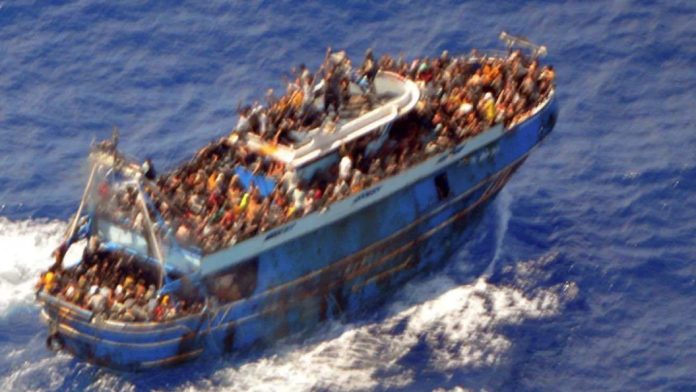The European Union (EU) has opened an investigation into the role of the bloc’s Frontex border agency in the tragedy off Greece last month that is feared to have killed hundreds of people in the Mediterranean.
Migrant crossings from North Africa have spiked this year, with massive losses of life.
EU Ombudsman Emily O’Reilly says she wants to establish just “who is accountable for these deaths” since, when it comes to helping those in distress on the high seas, Frontex’s jurisdiction and authority over member states like Greece is unclear.
The tragedy raises key questions as to whether the EU agency could or should have been more involved in the rescue, what precisely it communicated to the Greek authorities as the disaster unfolded and the agency’s level of responsibility, if any, for the lethal sinking.
When announcing the investigation in Brussels yesterday, Ombudsman O’Reilly stated that it was essential people should know the facts.
“It has been reported that in this instance Frontex alerted the Greek authorities to the ship’s presence and offered assistance, but it is not clear what else it could or should have done”, O’Reilly said.
“A tragedy of this magnitude requires all those involved to reflect on their responsibilities and to be clear to the public who is accountable for these deaths.”
Any new analysis arising from the investigation could potentially be of help to others adrift in the Mediterranean in the future, she noted.
The migrant vessel may have been carrying up to 750 people when it sank in the Mediterranean on June 14. Just over 100 survived, with 82 bodies recovered and hundreds still unaccounted for.
Greece has been roundly condemned for not having tried to save the migrants before the overcrowded vessel carrying the migrants sank in international waters.
Greek officials maintain that the passengers refused any help and insisted on proceeding to Italy (their stated destination). The officials stressed that any attempt to try and evacuate hundreds of unwilling people off an overcrowded ship would have been too dangerous.
Meanwhile, Frontex states it plans to cooperate fully with the investigation but points out that search and rescue missions fall under the overall responsibility of the national rescue coordination centres concerned.
“Frontex does not coordinate search and rescue operations”, the agency notes. “Nevertheless, Frontex sees the rescue of lives at sea as one of its essential roles and provides all the necessary support to national authorities when needed. This means that Frontex vessels conduct search and rescue operations when called upon.”
The EU investigation follows inquiries by the Greek authorities, who have been looking into the responsibilities of their own coastguard in the tragedy.

